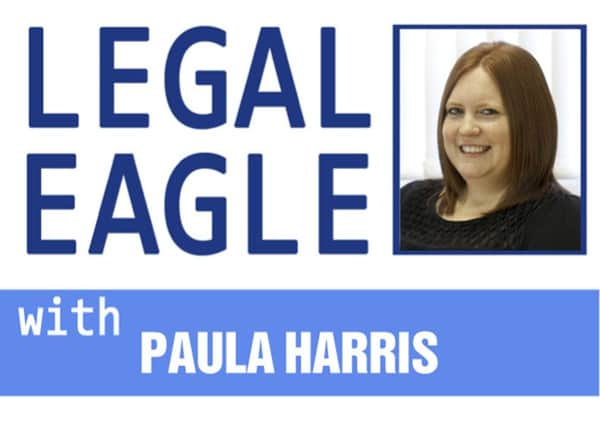LEGAL EAGLE: Where to start in business


Once you have your business idea nailed down, you need to decide what legal formation your business will take.
There are a couple of options that you can look in to – will you be a sole trader, a partnership, a limited liability partnership or a company? This all depends on how formal you intend to be, how much paperwork you want to do, and whether you want to share your personal finances with the business finances.
Advertisement
Hide AdAdvertisement
Hide AdThere are important legal implications for all options. If you want to be a partnership, you will need to consider whether you want to draw up a partnership agreement to set out the rights and roles of each partner, or whether you want these to be governed by law.
If you are going to be a company, there are lots of legal duties to comply with including making sure you are registered with Companies House.
It’s important to make sure you choose the right option for you and your business so talk things over with a business solicitor and get regular advice to stay on the right side of the law.
Another issue to consider is your terms and conditions of business. Yes, you do need to have these in a formal document to make sure your customers know what to expect from you.
Advertisement
Hide AdAdvertisement
Hide AdJust as important, it’s your opportunity to make sure that customers know their duties towards you.
Take the opportunity to set out in black and white when your customers will instruct you, when they will pay you, and how much notice they must give you to cancel.
Terms and conditions of business are a balancing act between protecting your interests and being fair to your customer. If your terms are too heavily in your favour, you may find that your clients don’t want to sign up to them and you lose business.
Make sure you discuss your requirements in detail with your solicitor, ensuring they understand exactly how your business operates and what your priorities are.
Advertisement
Hide AdAdvertisement
Hide AdYou then need to find a suitable premises for your business. Consider your plan for growth carefully – you need a premises that will allow you to expand and develop, but balance with the needs to have a premises you can afford while you get the business off the ground.
Seek advice from a specialist commercial property solicitor before you sign a lease.
You need to be sure how long you will be expected to stay at that premises for, whether there is any provision to leave early, and whether your rent might change in the future. You must also ensure you understand who is responsible for repairs, insurance and any damage to the building.
If you’re going to take the plunge in 2016, be sure to be well prepared and well advised.
Advertisement
Hide AdAdvertisement
Hide Ad• Paula Harris is Head of David Gray Solicitors’ Business Team which carries out work under the Law Society’s ‘Lawyers For Your Business’ scheme and assists many SMEs in all aspects of business work.
You can call for an appointment with Paula on 0191 243 8147 or Chat Live 24/7 at www.davidgray.co.uk.
• David Gray Solicitors is running a free seminar for businesses on Wednesday 24 February. For more information or to book a place contact [email protected]